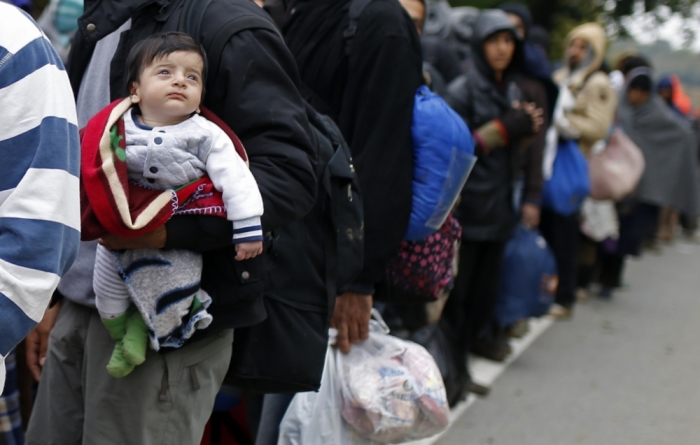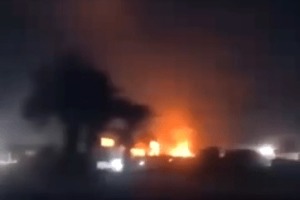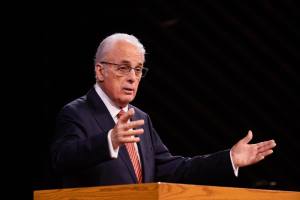We Went to See the Syrian Refugees, This Is What We Found

We weren't planning to get involved in the Syrian refugee struggle, but when the crisis became world news, we packed our family into our minivan and drove roughly 2,000 miles from Estonia to help. What we saw there changed our lives.
When we arrived in Serbia, we found that the refugees come in waves. At one moment, the temporary camps will have less than 100 people waiting for a bus to the next border. Then as buses come in and unload, suddenly there will be thousands of refugees there, without shelter and food, and sometimes without warm clothes.
We collected and carried humanitarian aid to two camps in Serbia — one at the central train station of Belgrade, the other near a bus station by Serbia's southern border with Macedonia. We had already received donations from individuals and churches in eight countries that allowed us to purchase blankets, clothes, food, and heaters. We filled our van four times, and, each time, the van was emptied and the supplies distributed within minutes.
On the night we were in the border camp, it rained heavily, and we saw 20,000 men, women, and children come through in that one night. About 1,200 of them were able to get on the next buses going towards Croatia. The rest had to wait it out. We saw about 50 people find a bit of shelter under the eave of a storefront, but they were all still very wet. The rest were literally sitting in the mud in the rain all night.
We saw several children without shoes, and the few we had were given out in minutes. At one of the camps, we asked a German relief organization how we could help. They needed bread, so my daughter and I walked from bakery to bakery, buying as much as we could.
While we were shopping, we saw an Iraqi grandfather and his grandson, who was about five, digging through a dumpster, looking for clothes. The grandson had cuts all over his face. I asked them to follow us to our van where we were able to give them clothes, a tent, and blankets. We also cleaned the boy's wounds with a damp rag.
These kinds of situations are repeating themselves daily in the camps now. But with temperatures dropping, they are beginning to see more cases of hypothermia and have reported deaths in the past couple of weeks.
One of the volunteer coordinators in Belgrade asked me, "Why are you doing this?"
I said, "Well, why are you doing this?"
He answered, "Because I believe that God is alive."
I responded, "That's my answer, too, my friend."
The opportunity to look into the eyes of the refugees and to see without a doubt that these are sons and daughters of God — it has changed our perspective on everything. Yes, this kind of work is costly, and exhausting, and painful. But this is a part of the amazing gift of life which we have in our Lord — to be able to really see one another, and to be able to experience the love and compassion of the Father for every single one of His precious children. It helps, too, to remember that Christ was a refugee.
For us, it's clear this is part of what Christ was talking about when He said, "Truly I tell you, whatever you did not do for one of the least of these, you did not do for me." (Matthew 25:45, NIV)
Despite the distance, there are at least three ways Americans can help. First, we are witnessing the largest mass migration worldwide in recorded history right now. Instead of worrying about the political implications, we should just figure out how we can show Christ's love as it is happening.
Second, prayer is also essential. Our prayer has been, "Lord, show me how You love them, and help me to love them in the same manner in which You would."
Finally, you can donate to a fund set up to help refugees. There are a number of them around the world. On The Mission Society's site, you can give to the Middle East Refugee Crisis. All proceeds go to missionaries working directly with refugees in the Middle East and Europe.




























